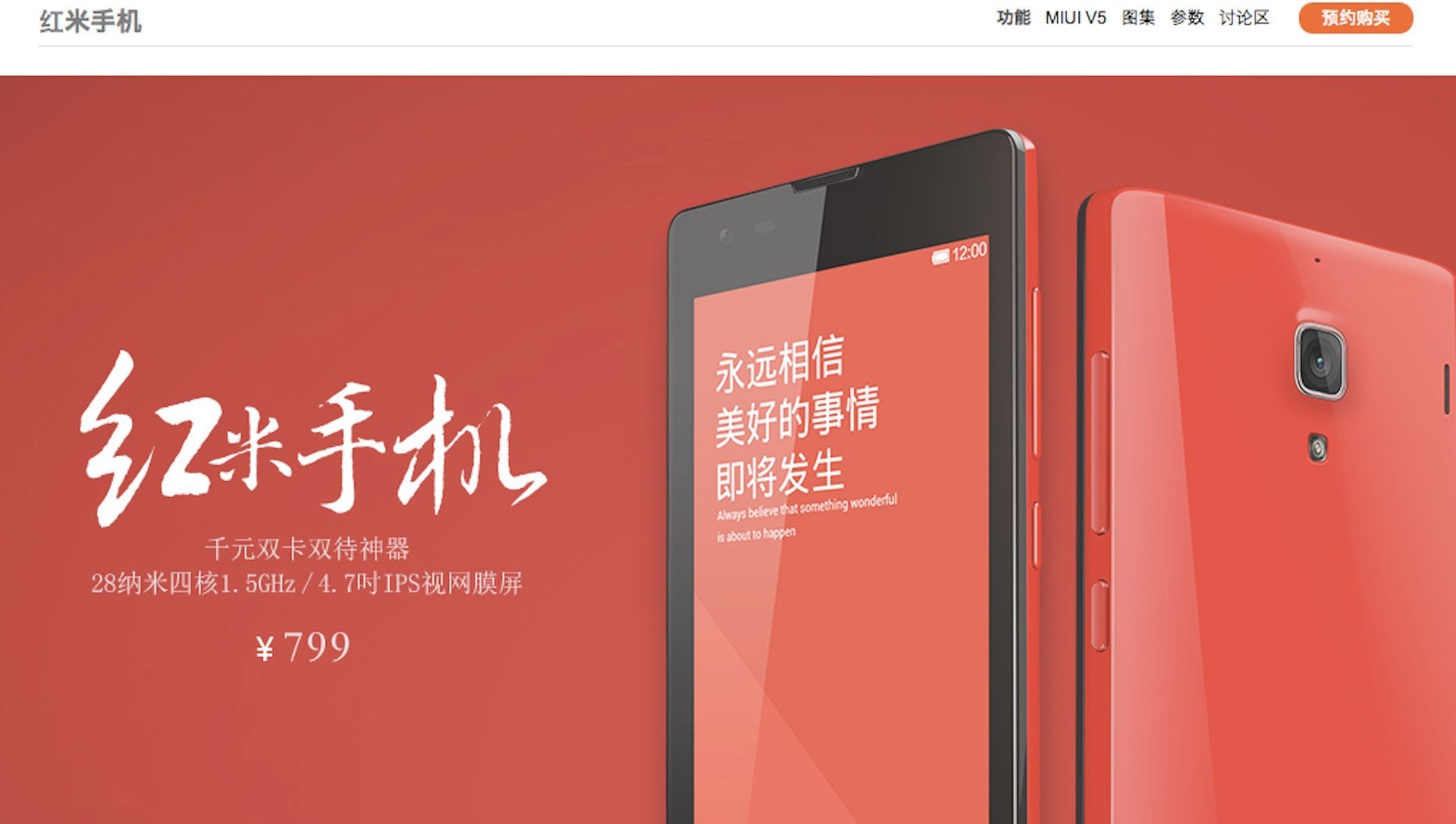The rapid rise of Chinese mobile phone company Xiaomi is more bad news for Apple
Here’s another reason why bigger and older rivals of Chinese mobile phone company Xiaomi should watch out: The firm (just barely) beat Apple in smartphone sales in China during the second quarter, according to research firm Canalys. The news comes amid Xiaomi’s launch of a 799 yuan ($130) smartphone named Red Rice, a product that will likely draw younger and first-time buyers.


Here’s another reason why bigger and older rivals of Chinese mobile phone company Xiaomi should watch out: The firm (just barely) beat Apple in smartphone sales in China during the second quarter, according to research firm Canalys. The news comes amid Xiaomi’s launch of a 799 yuan ($130) smartphone named Red Rice, a product that will likely draw younger and first-time buyers.
Cheap products with sleek designs and decent quality like Red Rice have made Xiaomi’s success. The company has grown quickly from its first smartphone sales in 2011, and now has a market share of about 5%, shipping slightly more smartphones than Apple in the second quarter, according to Computerworld.
Xiaomi has built a loyal following and its new products usually sell out in minutes. The company aims to double its sales this year. Quartz reported in June that Xiaomi had a valuation of at least $9 billion, according to investors and potential investors who had assessed the firm. That’s more than double the $4 billion figure investors had estimated a year ago.
That’s all bad news for Apple, which has had weak sales in China, a key growth market. The sale of Apple products in greater China, which includes Hong Kong and Taiwan, fell by 43% in the fiscal third quarter, compared to the last quarter. No wonder Apple CEO Tim Cook was recently in China meeting with the the head of the country’s largest carrier, China Mobile, to boost cooperation.
While growth is slowing in other markets, smartphone sales are rapidly rising in China. Shipments there jumped almost 110% in the second quarter compared to a year ago, according to Canalys. Apple knows it needs to step up its game in China; It may soon be competing more head to head with Xiaomi.
Getting ahead won’t be easy. Apple is rumored to be making a cheaper iPhone for Chinese markets. But that has been marred by reports that conditions at one of Apple’s iPhone manufacturers in China violate Apple’s standards and Chinese labor laws.